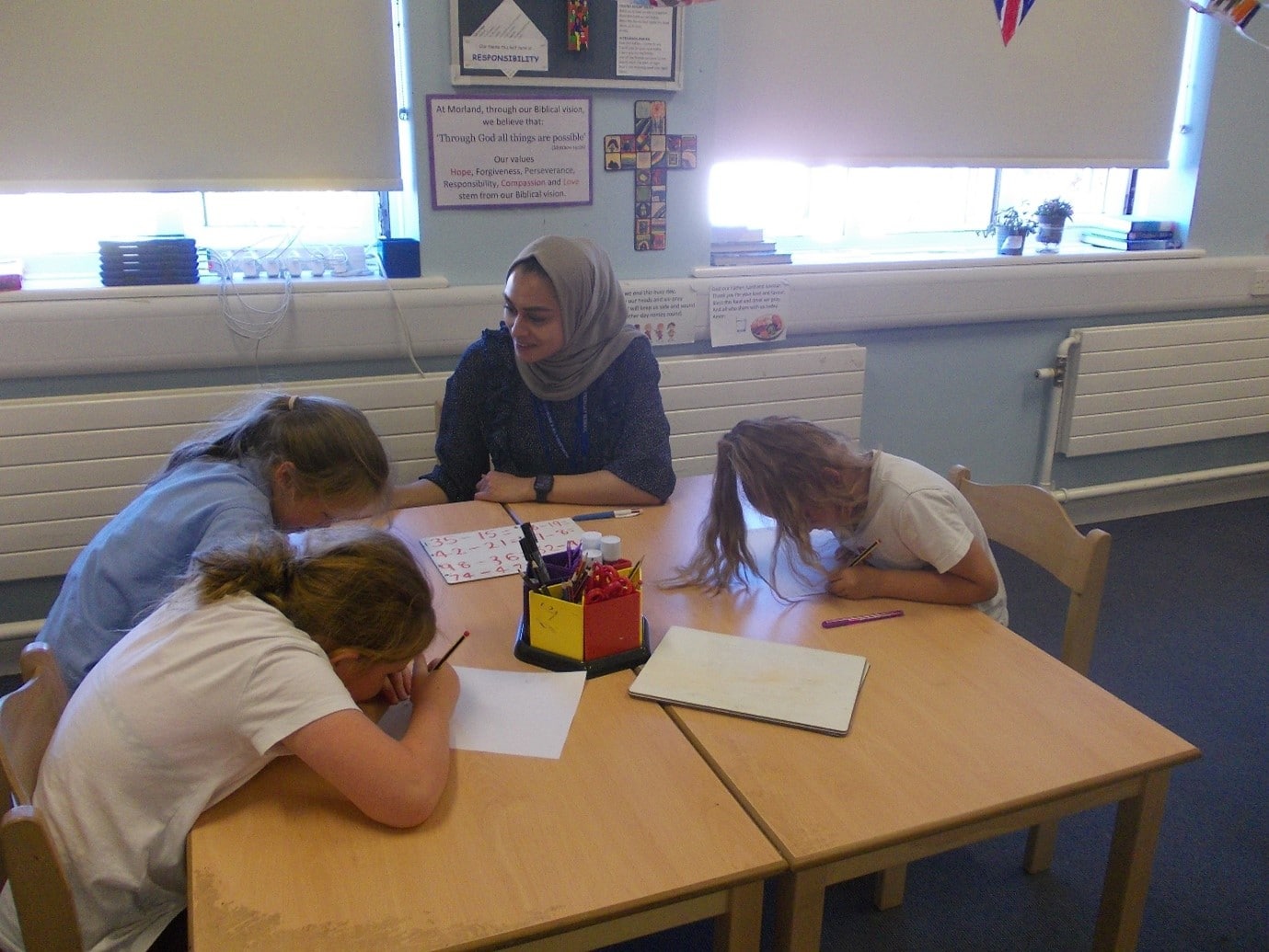Creator and overseer of school after hours catch-up programme. Pupils who were significantly behind in their English and Maths attainment following the disrupted months of the ‘Pandemic’ were identified from Year 2 to Year 6. Bespoke learning – including 1-1 on-line Maths tutorials – were put in place to accelerate progress and improve attainment. LSAs were trained to NTP expectations to deliver sessions.
Our Approach
#389 Impact of Catch-Up Programme – Morland Primary School
TIm White
What did we do?
“After school tuition has elevated children’s learning and confidence in class. It has also proven how beneficial these lessons are by the progress pupils have made when working independently and in their SATs results.”
Miss J Begum Y2 LSA/Catch Up Tutor.
Summary of impact
The after-hours tutorials run by LSAs worked particularly well. Children and tutors had already established positive relationships through normal day interactions which enabled the post school day sessions to run smoothly. Knowledge of children (both academically & personally) plus ready access to their teachers allowed the tutors to modify the content of their sessions when necessary – change in needs could be met quickly and effectively. Clear lines of communication between tutors and class teachers were vital to the success of the programme.
Progress and Attainment has improved throughout – scaled scores on NFER (or SAT) tests have risen by an average of 5 points. Examples of individuals; attainment levels are as follows:
Child X (Y4) – Maths from Spring (95 ss) to Summer (102 ss) NFER Reading from Spring (109 ss) to Summer (137ss) NFER
Child Y (Y2) – Maths from Spring (82 ss) NFER to Summer (98 ss) SAT
This contrasted to certain difficulties that occasionally arose when delivering the on-line maths programme (Third Space Learning). Inevitably tutors and teachers were unable to have immediate and frank face to face discussions which led to a lag in addressing individual needs. It should also be stressed that a small number of children were not suited to learning on-line and were removed from the sessions and replaced with more ‘IT’ engaged pupils. If we are to continue with the programme, then a more stringent selection process will need to be put in place.
Steps taken
- Identification of tutors to run the programme and then go through the NTP training process.
- Identifying PP children to enrol on the programme.
- Informing parents of why, when and where.
- Sourcing appropriate catch-up schemes to meet pupils’ needs, making sure tutors were fully aware of what was involved and the nature of delivery.
- Developing in-house/bespoke programmes where necessary.
- Finding spaces within school to deliver tutorials effectively.
- Overseeing smooth running of the programme – communicating with pupils and tutors regarding impact.
What would we do differently
A number of children were not suited to learning on-line and were removed from the sessions and replaced with more ‘IT’ engaged pupils. If we are to continue with the Third Space programme, then a more thorough and thoughtful selection process will need to be put in place.
To a lesser extent this could also be applied to the tutorials run by LSAs. Certain pupils did not have the academic stamina to focus on their learning during the sessions run after school – they were simply overloaded.
Cost
- Increased hours for 5 LSAs employed to deliver and manage sessions.
- LSAs were also paid for their training hours.
- Financial outlay supported by NTP to secure Third Space Learning Sessions.
- Costs involved in buying catch up schemes such as Number Stacks.

